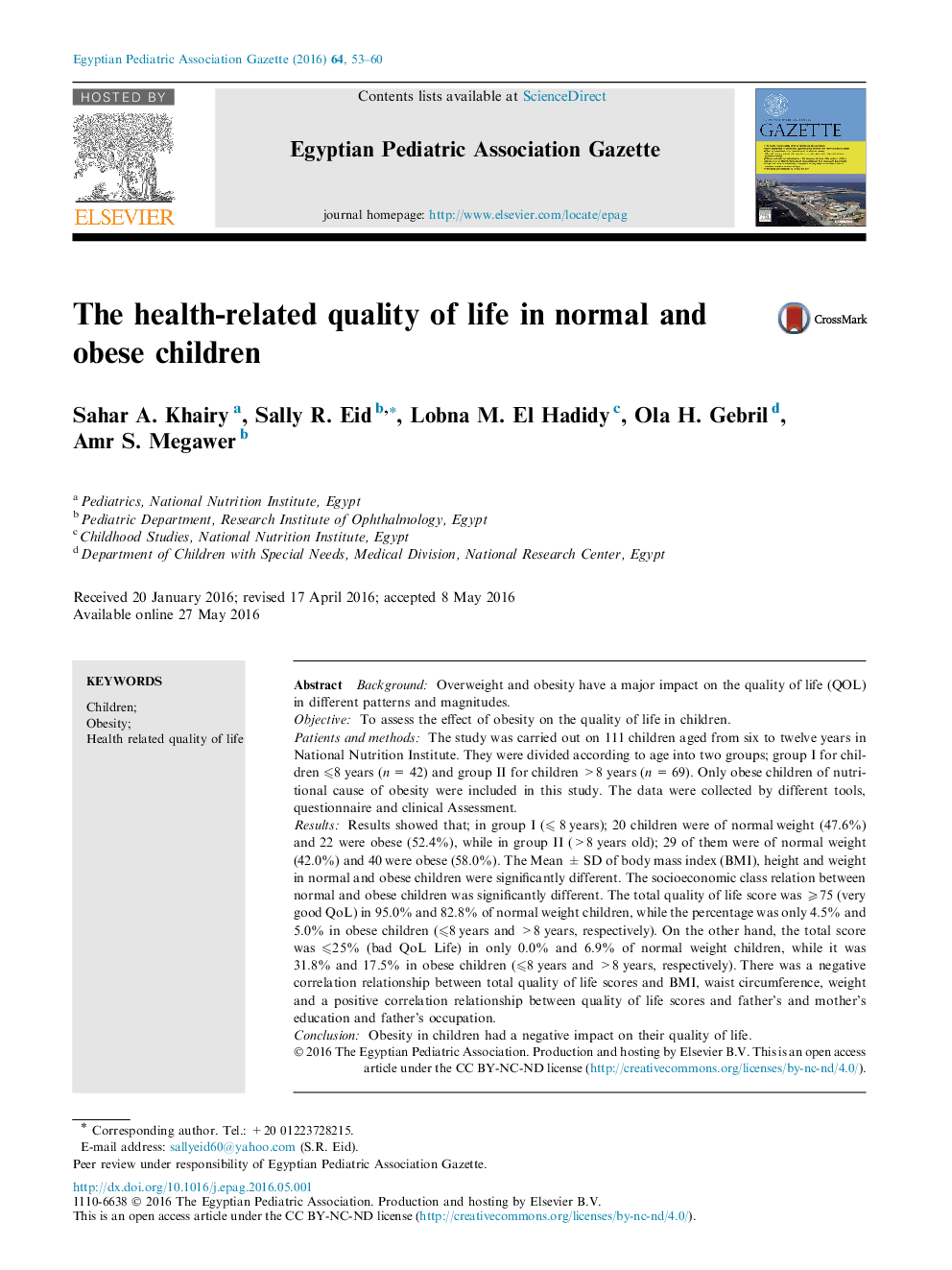| Article ID | Journal | Published Year | Pages | File Type |
|---|---|---|---|---|
| 4153567 | Egyptian Pediatric Association Gazette | 2016 | 8 Pages |
BackgroundOverweight and obesity have a major impact on the quality of life (QOL) in different patterns and magnitudes.ObjectiveTo assess the effect of obesity on the quality of life in children.Patients and methodsThe study was carried out on 111 children aged from six to twelve years in National Nutrition Institute. They were divided according to age into two groups; group I for children ⩽8 years (n = 42) and group II for children >8 years (n = 69). Only obese children of nutritional cause of obesity were included in this study. The data were collected by different tools, questionnaire and clinical Assessment.ResultsResults showed that; in group I (⩽ 8 years); 20 children were of normal weight (47.6%) and 22 were obese (52.4%), while in group II (>8 years old); 29 of them were of normal weight (42.0%) and 40 were obese (58.0%). The Mean ± SD of body mass index (BMI), height and weight in normal and obese children were significantly different. The socioeconomic class relation between normal and obese children was significantly different. The total quality of life score was ⩾75 (very good QoL) in 95.0% and 82.8% of normal weight children, while the percentage was only 4.5% and 5.0% in obese children (⩽8 years and >8 years, respectively). On the other hand, the total score was ⩽25% (bad QoL Life) in only 0.0% and 6.9% of normal weight children, while it was 31.8% and 17.5% in obese children (⩽8 years and >8 years, respectively). There was a negative correlation relationship between total quality of life scores and BMI, waist circumference, weight and a positive correlation relationship between quality of life scores and father’s and mother’s education and father’s occupation.ConclusionObesity in children had a negative impact on their quality of life.
